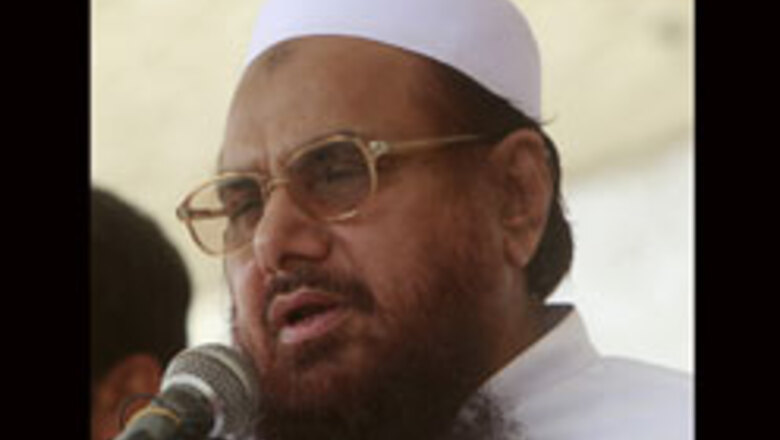
views
Islamabad: Pakistan's Supreme Court on Tuesday upheld a lower court's decision to release an Islamist militant who India accuses of masterminding a 2008 assault on Mumbai, dismissing a government appeal.
Pakistan's central government and a provincial government had challenged the release of Hafiz Mohammad Saeed, founder of Lashkar-e-Taiba (LeT) militant group, by a high court last year.
But the Supreme Court quashed the appeals, saying the government had failed to provide sufficient evidence against Saeed. "The appeals are dismissed," Justice Nasir-ul-Mulk, head of a three-member panel, said while announcing the decision.
India is likely to be dismayed by the decision, which comes shortly after the two countries agreed to resume talks that had been frozen by India after the Mumbai attacks, in which 166 people were killed.
India blamed the LeT group for the coordinated assault by 10 militants on its financial capital in November 2008. Indian security forces killed nine of the militants while the tenth, Pakistani citizen Mohammad Ajmal Kasab, was caught alive. A Mumbai court sentenced him to death this month.
Pakistan has acknowledged that the Mumbai attack was plotted and partly launched from its soil and has put on trial seven suspects, including a senior commander of the LeT, for their roles in the assault. But Pakistan says India has not provided sufficient evidence to prosecute Saeed.
Saeed co-founded the LeT in the 1990s to join a Muslim insurgency against Indian rule in the disputed Kashmir region. But he stepped down as head of the group shortly after India accused it and another militant group of an attack on the Indian parliament in December 2001.
Pakistan outlawed the LeT in January 2002. Pakistan detained Saeed in December 2008 after a U.N. Security Council resolution to put him and a charity he heads on a list of people and organisations supporting al Qaeda.
But the high court in the eastern city of Lahore released him last year on the grounds of insufficient evidence, prompting the government to appeal to the Supreme Court for his re-arrest.
Pakistani Prime Minister Yusuf Raza Gilani and his Indian counterpart Manmohan Singh met on the sidelines of a regional conference last month and agreed to get talks going again to tackle their disputes.
The Supreme Court's decision on Tuesday was not expected to derail that process. The nuclear-armed neighbours have fought three wars since 1947.


















Comments
0 comment